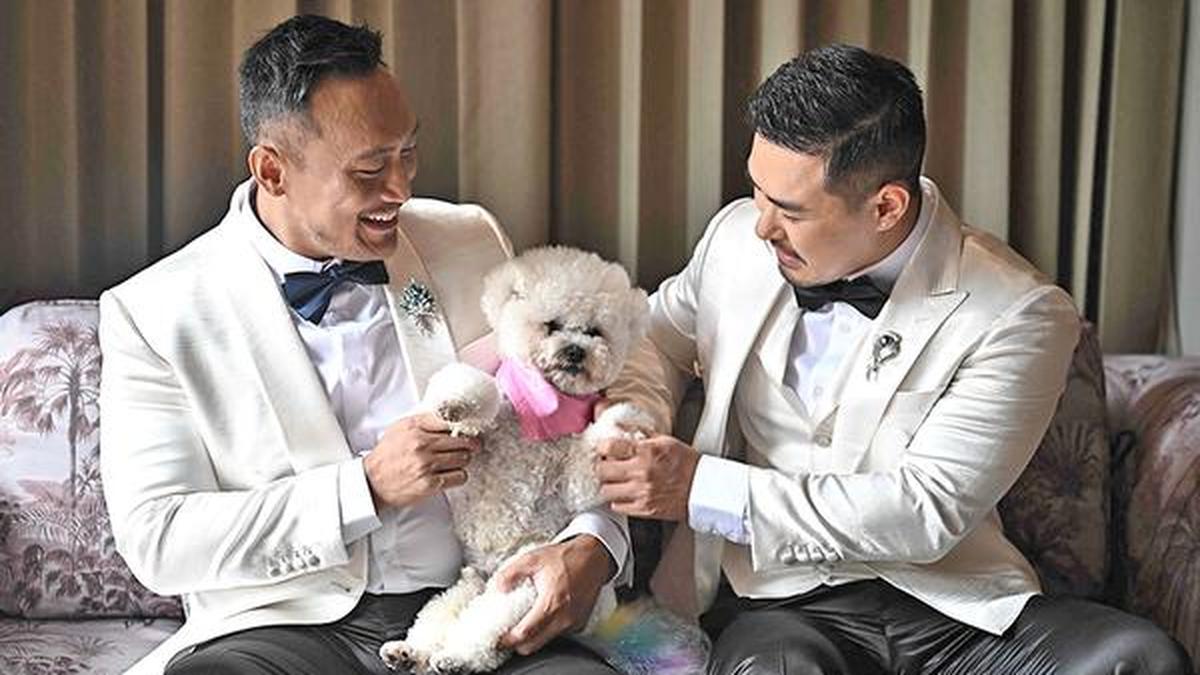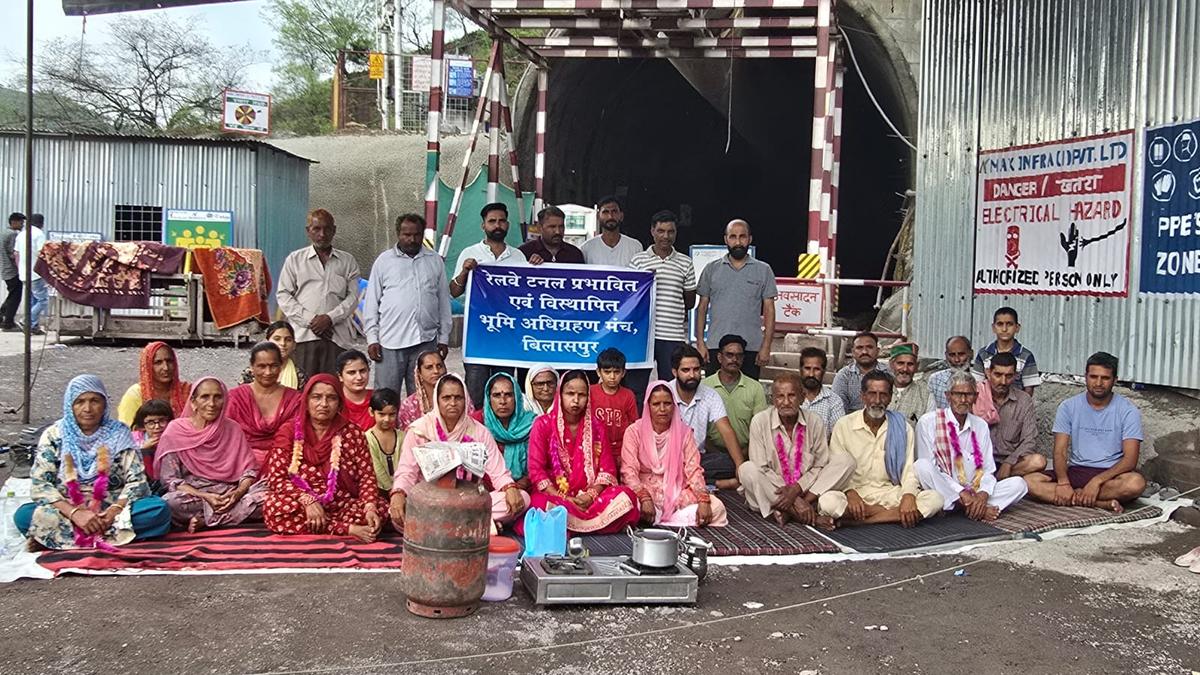
Wang Zengyi, left, and Song Jihan sit with their dog before their wedding ceremony on May 31.
| Photo Credit: AFP
When Wang Zengyi, 41, and Song Jihan, 29, first met at a friend’s dinner party in China, it was love at first sight.
“I thought he was handsome and pure,” says Mr. Wang. “Our love has deepened over time.”
Nearly three years later, the gay Chinese couple are getting married in Thailand, which became Asia’s largest nation to legalise same-sex marriage earlier this year — including for foreign couples.
They are among the first Chinese LGBTQ couples to tie the knot in the Southeast Asian country as it celebrates its first Pride since the law’s passage.
“Thailand is a freer country,” said Mr. Wang after they signed their marriage certificate at a Bangkok registry office. “It’s also more inclusive to our community.”
He believes they are the first gay Chinese couple to host a full wedding ceremony in Thailand, but that “gradually,” more will follow in their footsteps.
“I hope we can have a positive influence.”
They enlisted the help of an agent and a consultant to organise the wedding and paperwork to finally make their dream come true.
Bureaucratic hurdles
Chinese authorities decriminalised homosexuality in 1997, but same-sex marriage is not legal, and social stigma is widespread.
Real estate agent Owen Zhu helps gay Chinese couples come to Thailand to get married.
Mr. Zhu, 40, said that the biggest difficulties couples such as Mr. Wang and Mr. Song face are linked to paperwork, as well as prejudice. It is difficult for Chinese LGBTQ individuals to obtain the certificate of single status required by Thailand, proving that they are not married, he says.
China also does not recognise same-sex marriages registered abroad.
But Mr. Zhu believes that despite China’s bureaucratic hurdles, there will be a rise in the number of Chinese couples looking to wed and even live long-term in Thailand.
“There is a large market demand from many Chinese same-sex couples,” he says.
“Thailand is a particularly tempting place, allowing freedom to do things not possible in China, like holding hands or kissing in public with a partner”.
Mr. Zhu says the simple act of signing a marriage document is deeply meaningful for his clients. “Though this piece of paper might not be recognised in China, in their hearts, they see it as recognition and acceptance from the world,” he says.
Chris Yan, a legal consultant who helped Mr. Wang and Mr. Song navigate the Thai administration to formalise their partnership, says the process for foreigners to register their marriage in Thailand is fairly smooth as long as they can provide the necessary documents.
Love ballads, vows
Surrounded by dozens of close friends and their ring-bearing small fluffy dog, Mr. Wang and Mr. Song sing love ballads to each other on a sandy Pattaya beach before tearfully reading their wedding vows. They will return home to China after their honeymoon, but hope to eventually retire in Thailand.
Life is short, is the message they have for other couples like them. Mr. Wang says: “Be with the one you want to be with.”
Published – June 02, 2025 08:43 am IST



